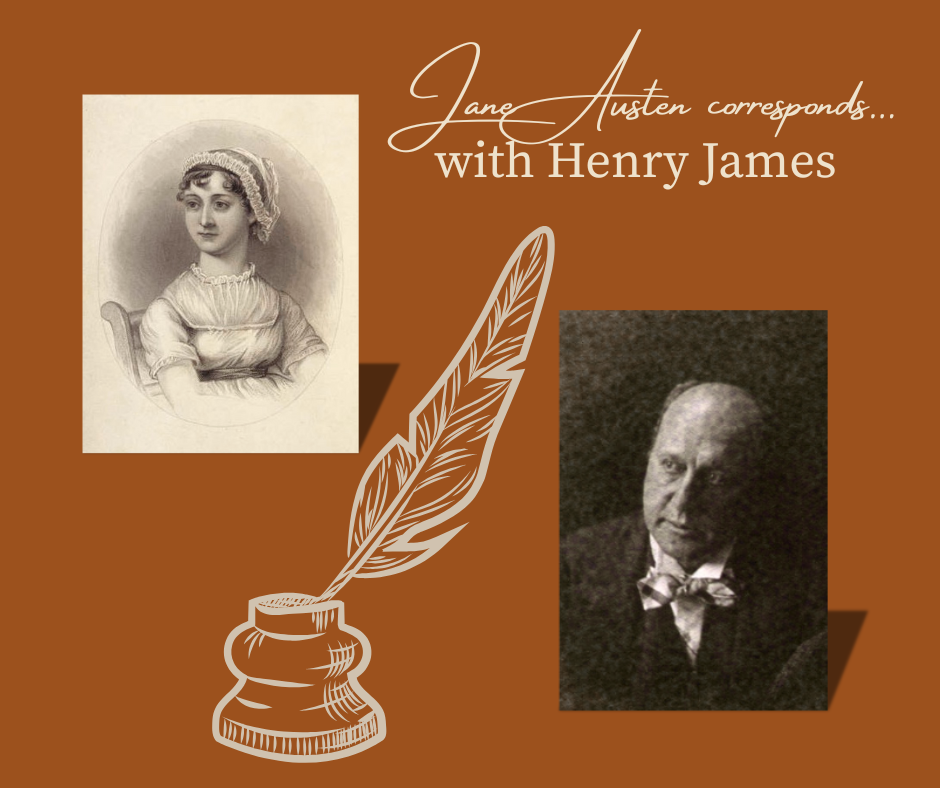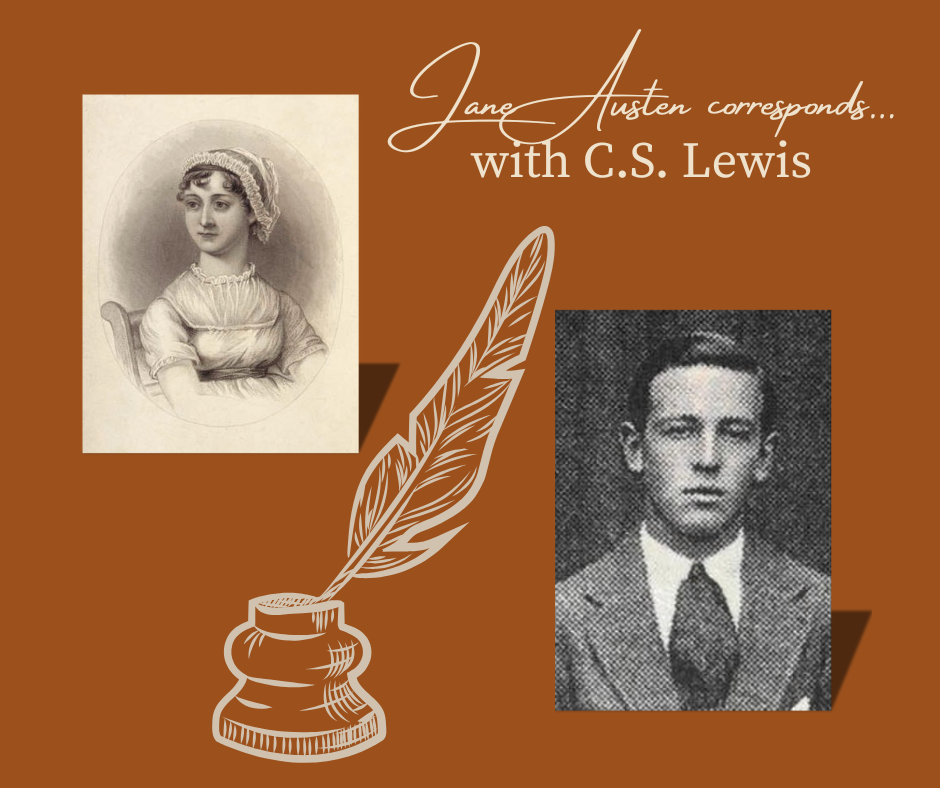Jane Austen corresponds ... with Virginia Woolf

This blog is the second in a series of three posts imagining Jane Austen writing back to authors who have been inspired by her work. Click here to read the previous letter to Henry James, and stay tuned for the third, and final, letter in the series.
My dear Miss Woolf,
I take this opportunity to write to you, having just now completed a correspondence to our mutual friend Mr Henry James, in the hope that I may solicit your consideration on several topics peculiar to our particular circle.
I learn from dear Mr Henry, and I believe you will agree with me that, as a connoisseur of great English novelists, he is well equipped to venture such a statement, that these exceptional individuals (I refer here to the ‘great novelists’) give rise through their art to the rebirth and multiplication of our ideas as readers. Your humble friend, of course cannot be considered as existing within the same sphere as these deities; however, I see that you, dearest and kindest Miss Woolf, have allocated to my unceasing efforts to entertain my fellow man, the very spirit required to awaken one’s ideas and stimulate the imagination. You as my friend, know all too well of “the little bit (two inches wide) of Ivory on which I work with so fine a Brush, as (to produce) little effect after much labor” and to this friendship I am most obliged for your defence of my claims as the uninformed Authoress I dare to present myself. (1) Pray, forgive me for exhausting your commendations by their transcription here, as I tire not of reminiscing in the glow of your kindness, especially when considering the objections to these opinions, which have arisen from another quarter.
“She stimulates us to supply what is not there. What she offers is, apparently, a trifle, yet is composed of something that expands in the reader’s mind and endows with the most enduring form of life scenes which are outwardly trivial.” (2)
I see, though, that even you, my devoted good friend, have found it necessary to generously alert me to the threat of ennui which lurks in the curtains of every scene that must be turned for the benefit of plot. I have no fear of meeting Your criticism my dear Miss Woolf, as you are conscious to temper comments of “peculiar dullness” with a belief in an approaching “transition stage” rather than with degradation; with a “(familiarity) with the ways of (one’s) world” rather than an inability to discern. Be comforted in knowing, as I do, that although I am “beginning to discover that the world is larger, more mysterious, and more romantic than (I) had supposed and that in this “new sensibility to nature do (you) detect (these changes)” (3), there are some amongst us for whom my every composition is contained within “one plot.” (4)
“The truest friend (after all) does not doubt, but hope”, and you, my dear Miss Woolf, are an attestation to such a friend. (5)
Yours affectionately
J. Austen
Miss Austen
Chawton
Alton
Hants
Niki Lindsay has a deep appreciation for classic literature, especially the works of Jane Austen, which inspired her to study English Literature at university. Continually reading, rewatching adaptations, and listening to her novels serves as her therapy and never fails to entertain her. This deep appreciation, which is amusing to her family, has nevertheless helped her connect with others who share the same enthusiasm and elevated her social interactions.
Notes:
- Jane Austen, from ‘Jane Austen’s Letters, Fourth Edition, collected and edited by Deidre Le Faye.
- Virginia Woolf, ‘Jane Austen’, from ‘Jane Austen, A Collection of Critical Essays’, edited by Ian Watt.
- ibid.
- C.S. Lewis, ‘A Note on Jane Austen’, from ‘Jane Austen, A Collection of Critical Essays’, edited by Ian Watt.
- Jane Austen, Emma



Leave a comment
This site is protected by hCaptcha and the hCaptcha Privacy Policy and Terms of Service apply.